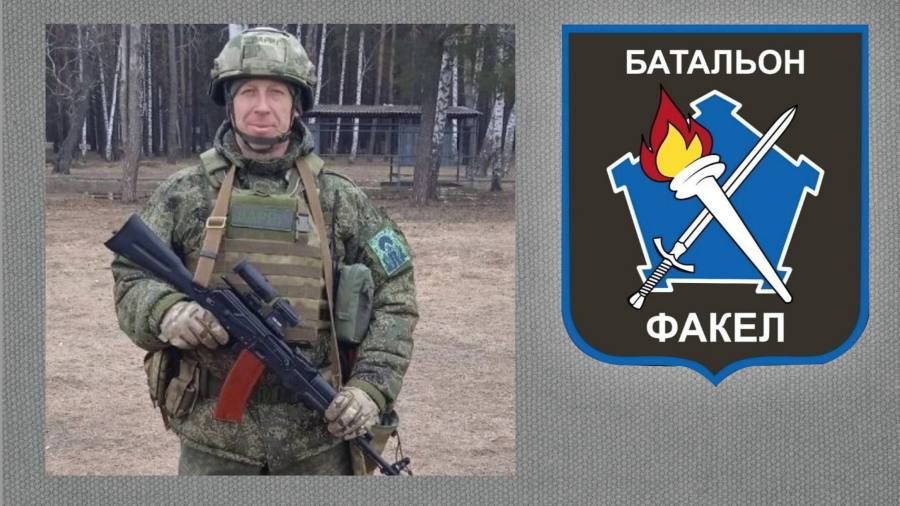
The late Erast Yakovenko, a barrel-chested veteran of the 1990s war in Chechnya, hailed from a long line of Russian military men. So it was no surprise to his family when he signed up to fight in Ukraine — even at 53.
What was more unusual than his age — and his demise on the frontline — was the way he joined the war this spring: as a member of a Gazprom-backed military battalion. The Russian state gas company employed Yakovenko in life, and is expected to compensate his widow for his combat death.
His unit, which is named Potok, or stream, like Gazprom’s Nord Stream pipelines, includes recruits from among Gazprom’s security guards, many of whom were signed up at work, promised job perks, pay and equipment provided by the company.
The battalion forms part of a web of semi-independent military units that have mushroomed under Russia’s war effort after the regular army’s offensive flopped last year.
The Financial Times has traced the rise of Potok and another Gazprom-linked battalion called Fakel, through more than a dozen interviews with soldiers’ relatives, current and former Gazprom staff, military recruiters and associates, as well as a Ukrainian intelligence document on Russian militias.
Although formally attached to competing branches of Russia’s secret services and armed forces, the groups are turning the country’s fighting force into a messy patchwork of units with a plethora of elite sponsors, according to western and Ukrainian intelligence officials.
“There are various chess pieces on the board. They are trying to work out what to do to preserve their wealth, position, and power,” a western security official said.
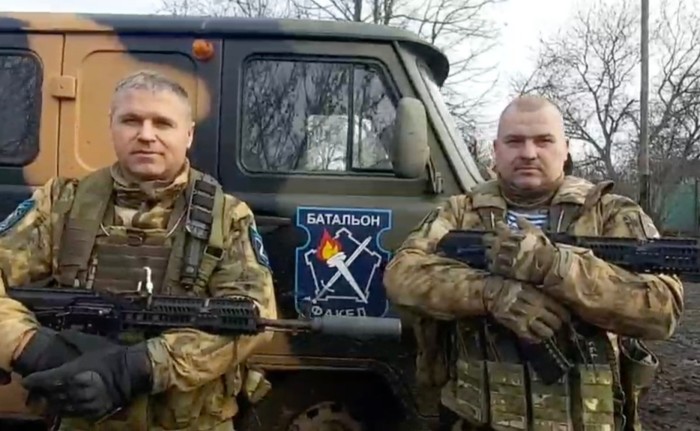
Known as volunteer battalions, since men enlist for a salary rather than under conscription, such smaller units have begun to rival the notorious paramilitary group Wagner for prominence on the front lines, irritating its founder Yevgeny Prigozhin.
Battalions with nicknames such as “Demon” and “Sparta”, each with their own logos and patches, share enlistment ads online, while potential recruits can shop around for the best salaries and sign-up bonuses. Some are raised by Russian satraps in occupied Donbas or Crimea, others with the backing of rich sponsors or individuals affiliated with the security services. Most hide their financial arrangements.
Gazprom has never acknowledged involvement in the formation of frontline battalions. In previous years, it was keen to project a traditional western corporate image to its trading partners in Europe, making environmental, social and governance pledges and plastering its name across football stadiums through its sponsorship of the Uefa Champions League.
Although the company was placed under some sanctions after the start of Russia’s full-scale invasion, its gas flows to Europe do not face export curbs, though volumes have sharply declined.
For Russia, the battalions provide a way to meet military manpower needs through private recruitment, without launching a new wave of forced mobilisation; a conscription drive last September caused widespread panic and led hundreds of thousands of people to flee the country.
That mobilisation was to bolster Russia’s full-scale invasion of Ukraine, an operation that began in February 2022 and was initially expected to take just weeks; soldiers packed ceremonial attire in satchels for a planned parade in Kyiv. Since then, about 200,000 Russian troops have been killed or wounded. Instead of pushing deeper into Ukraine, Russia is now digging in, keen to hold the 20 per cent of the country it still occupies against an expected counter-offensive.
Ruslan Pukhov, director of the Moscow-based Centre for Analysis of Strategies and Technologies, said the emergence of a plethora of battalions at this stage of the war was “logical” given the desire to avoid a second mobilisation. “The Russian authorities are looking for some palliative solutions,” he added.
For oligarchs and corporations, setting up these military units is a way to demonstrate their fealty to the war effort, according to a former senior Russian official. It also enables companies such as Gazprom to keep control over who on their payroll is drafted — with low-skilled workers considered more expendable than gasfield engineers.
“There’s an order out to sign up volunteers in various ways, including through wealthy state and private structures that have enough money just to recruit people,” the former official said.
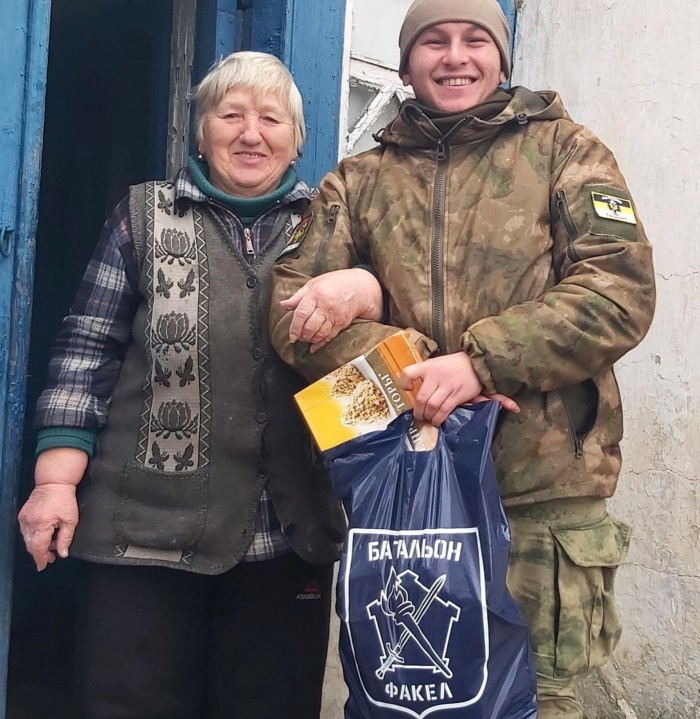
Gazprom is at the heart of Russia’s economy — and an obvious target for Russia’s army as it seeks to boost manpower, analysts say. The company is state-controlled, employs almost half a million people and its security division has departments across the country.
Yakovenko, who hailed from Kabardino-Balkaria in southern Russia, worked at Gazprom as a security guard, according to two members of his family and a government document. His decision to enlist came after seeing many wounded men return to his hometown, said Oleg, a family member.
Yakovenko volunteered at his workplace for a battalion called Potok. Oleg said the opportunity to “enlist via the gas industry” allowed Yakovenko to sign up for the frontline “without losing his place of work”. Such terms were appealing to workers afraid of losing their jobs in the event of being conscripted into the regular armed forces.
Yakovenko was killed in fighting near Bakhmut on April 24, according to a memorial post shared on social media by the government education department for his hometown, Prokhladny. It described him as “a member of the Potok battalion (Gazprom) ”.
His widow and youngest child would receive the usual state compensation, Oleg said, but Gazprom was expected to provide additional compensation as Yakovenko “joins the rank of people who died doing their job in the gas industry”.
Sergei Kupriyanov, a Gazprom spokesperson, declined to comment. Dmitry Peskov, spokesperson for Russian president Vladimir Putin, redirected the FT’s questions to Russia’s defence ministry, which did not respond to a request for comment.
Recruitment for the battalions began in August last year, according to two current Gazprom workers who witnessed the process and one relative of another.
“Attention. A meeting will be held at 10am on the base of the line pipe operation centre,” a manager at Gazprom security texted a staff WhatsApp group in August, according to a message shared by a current security guard working in central Russia. “Attendance is mandatory.”
The manager told the gathered group that at least two men had to volunteer for combat. “He started saying: Gazprom will equip you, we will pay you more money than normal contract soldiers receive,” recalled the guard, who was present at the meeting.
Of his 15-man shift, two came forward and were trained for a month at a military base in Tambov. “They said they would be able to go without losing their place at work, and would get a holiday upon return,” the guard said.
In another corner of Russia, in Siberia, security guards were also called in for an emergency meeting in August, the wife of one of the men present recalled.
“They told them to hand over their phones and go in to the boss’s office in small groups,” she said, adding that they were asked, “one by one”, to register their interest in volunteering.
“They were promised heavenly terms,” said the woman, whose husband declined to volunteer. “A million [roubles] overall. Of course, all smart people laughed at that. But at the same time, many quickly pictured themselves buying a new flat within three months.”
Their manager promised that their equipment would be supplied only by Gazprom. “They said: ‘don’t worry, you won’t be getting all that sour cabbage from the army. Everything will be provided by us’,” the woman said.
Only in October were six men from that particular Gazprom shift actually deployed, serving on short, three-month contracts near Soledar, a salt-mining town north of Bakhmut in eastern Ukraine. Another group was sent off in February, this time for six months. The wives stayed in touch.
“He’s near Bakhmut . . . there are a lot of 200s,” wrote a friend of the woman, using the military numerical code for soldiers killed in action. She shared photos of a man in camouflage and said he had signed up at work — joining a battalion called Fakel, the Russian word for “torch”.
Fakel is also the name of a bi-annual Gazprom corporate talent competition, a big festival in which teams of musical performers of all ages compete for prizes. Its logo, like the Fakel battalion insignia, includes an upright torch. Fakel-Gazprom is the name of a company table tennis team.
A battalion of soldiers called Fakel has been visited by Russian state TV, and the division has a tiny group on the Russian messaging app, Telegram, where relatives leave shout-outs for loved ones serving on the frontline.
No link to Gazprom is mentioned, aside from some video messages shared to this Fakel chat group late on December 31 last year.
In one clip, three men sit inside a security booth with CCTV cameras in the background, wearing Gazprom-branded uniforms. “Guys, we’re wishing you a Happy New Year, from Portovaya LNG,” one says, naming a Gazprom compressor station in the north-western town of Vyborg. “Come back home soon, healthy and alive.”
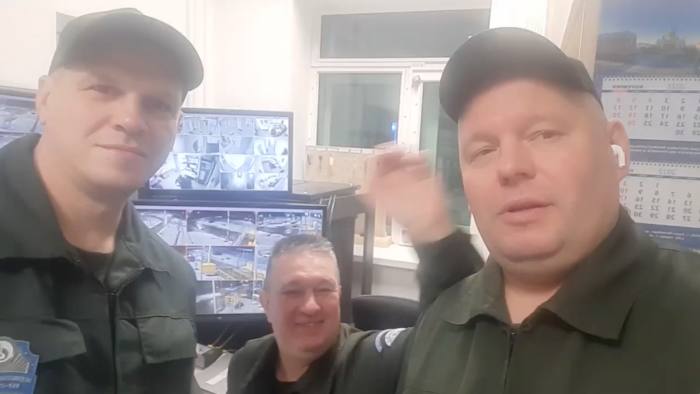
“Happy New Year to our colleagues from Vyborg (Gazprom Security),” an accompanying message reads. Other videos from the security office feature a man dressed as Santa Claus. In another, a video sent back home from the frontline earlier that month, three heavily-armed men stand in a field and, speaking to camera, send “greetings to Vyborg” and to “our colleagues at our shared place of work”.
The Fakel unit appears also to include regular volunteer fighters, and there are shout-outs in other videos to Cossacks and to members of other groups. The Pravaya Rossiya (Right Russia) party, an imperialist movement, describes itself as a prominent supporter of Fakel, providing equipment.
Georg Borovikov, a far-right nationalist who leads the party, told the FT that some of its members were fighters in the battalion, motivated by their desire “to restore the Russian empire”.
“The fighting is ongoing and a large number of volunteer battalions, without any direct link to the defence ministry, are participating,” he said. “There are really a lot, everywhere.” The party has independently launched a new 260-strong battalion called Skif, after the Scythians.
Asked about any ties Fakel might have to Gazprom, Borovikov said he did not know, but added: “Just getting up and organising [a battalion] from scratch is difficult. For this you need to have some sort of sponsor, who might be located a bit higher up.”
The proliferation of volunteer battalions has begun to unsettle Prigozhin, the head of Russia’s largest and most notorious private military company, Wagner. The caterer-turned-warlord in April released a foul-mouthed 26-minute rant against rivals he accused of attempting to steal his thunder — and his funding.
Prigozhin name-checked Potok and Fakel in the speech and claimed such groups, which were little-known at the time, wanted “to dilute Wagner” so that there would not be “one big force that can play a role in domestic politics”. “Everyone is saying that there will be a power struggle at some point, and everyone needs their own army,” Prigozhin said.
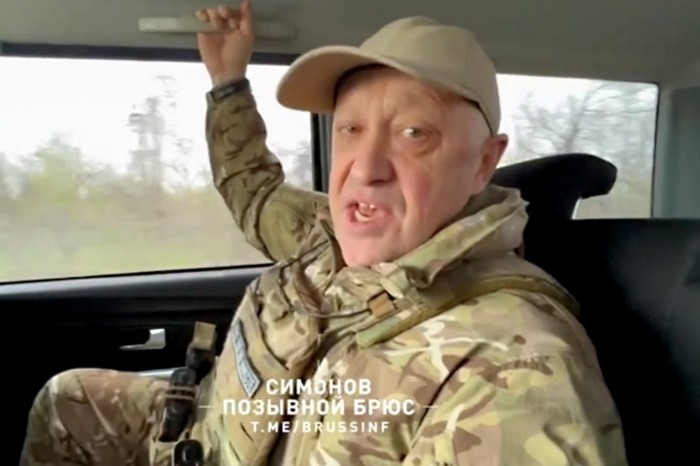
But, so far, the actual contribution of these units on the battlefield has been limited, according to the former senior Russian official.
“It’s clear the people doing this are pretty hopeless,” the former official said. “You have to give Prigozhin his due . . . he at least has some experience managing this stuff.”
The powerful militia sponsors seem more concerned with securing assets and their domestic positions than with battlefield effectiveness, according to the western and Ukrainian officials.
“You have the army, you have the PMCs [private military companies], you have the national guard, you have the FSB — they’re trying to work out who has the same approach,” the western official said. “If there’s a change, they want to be in a position of power.”
During his video rant, Prigozhin drove past rows of destroyed homes near the frontline to trenches manned by these smaller battalions, including one he said was Gazprom’s Potok. He described the men as being too poorly equipped to hold their ground and excoriated sponsors preoccupied with scoring political points rather than fighting Kyiv.
“People with money think creating a [battalion] is so hot right now. So they have begun to multiply . . . two of each kind,” Prigozhin said. “They need to report to the Kremlin about how fucking amazing they are for creating their own [units].”
Several smaller battalions, such as Potok, appear to exist under the auspices of a larger private military company called Redut, a competitor to Wagner that once provided a handful of staff to guard Russian interests in Syria. Redut is believed to have roughly 7,000 soldiers and has been involved in operations around Kyiv and Kharkiv, according to the Ukrainian intelligence document.
Volunteer battalions were often placed under the guardianship of the regular armed forces, said Ruslan Leviev, an independent military analyst and head of the Conflict Intelligence Team. But others were subsumed into irregular outfits, such as Wagner or Redut. “Some structure takes patronage over them,” he said.
The FT contacted Gazprom security departments across Russia to ask about the existence of Potok. Staff at one company outpost in Tomsk, Siberia, said all information about Potok had been “classified”.
At another in the Urals region, staff confirmed that “only our workers” at Gazprom could enlist to Potok.
When asked whether Potok was still looking for recruits, one worker at a third site replied: “Why do you ask? Do you want to sign up yourself?” Shortly afterwards, the Gazprom worker denied that anything named Potok existed.